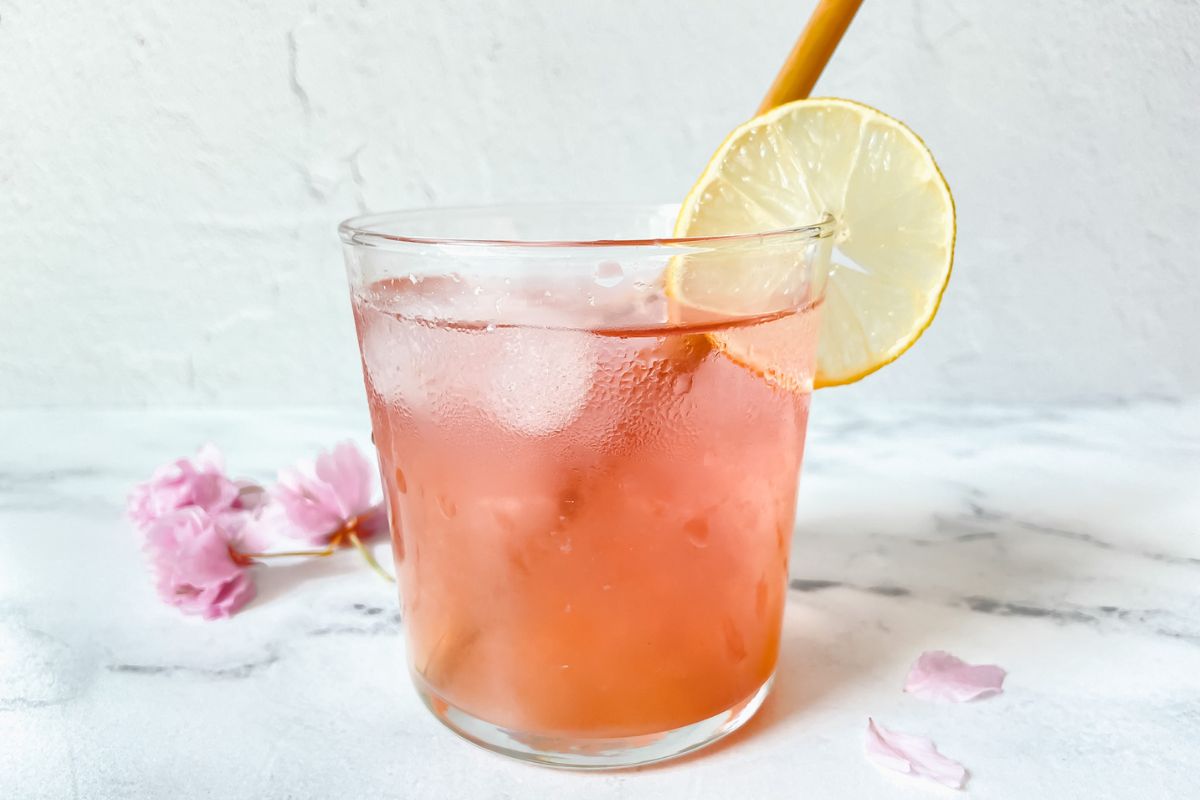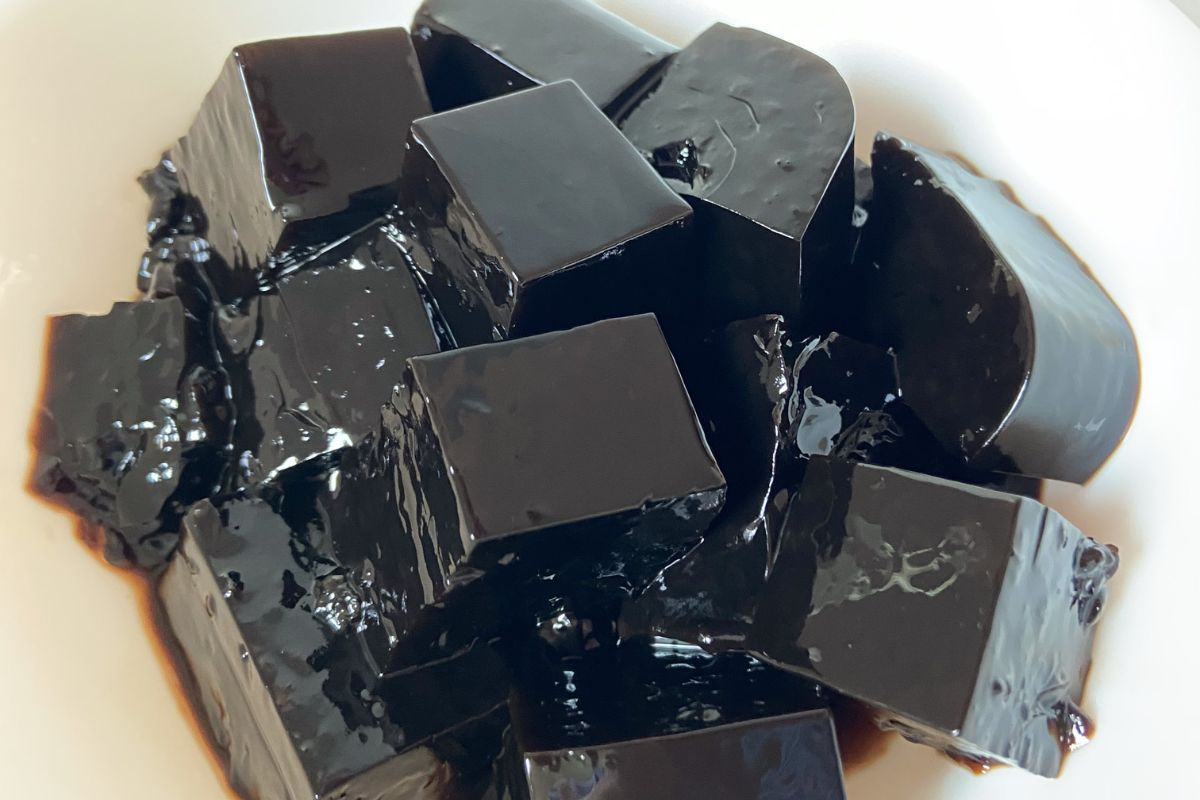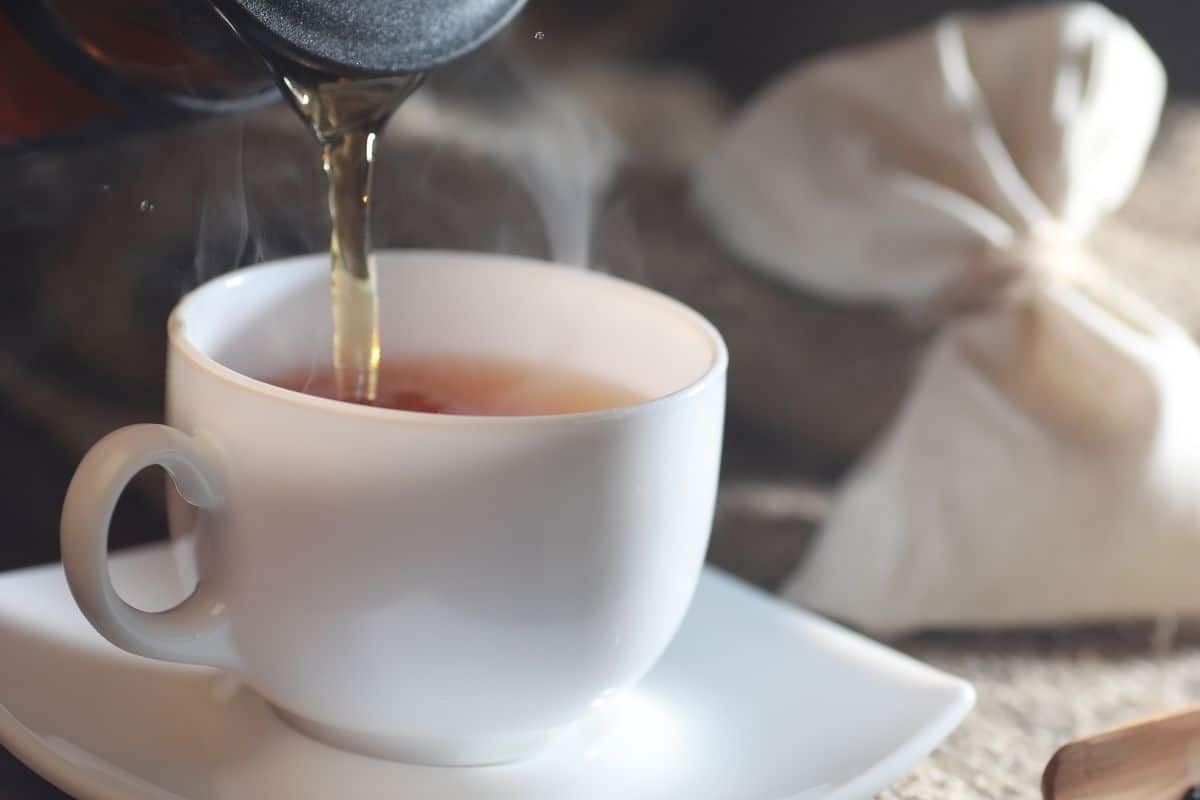Can You Cold Brew Herbal Tea?
Why I don’t prepare herbal tea by cold brewing it, although I love cold brewing tea in general – and what I do instead

There is this common belief among tea lovers that you can cold brew any type of tea.
While it may be true in the sense that you can get good-tasting tea by cold brewing most types of tea, I personally avoid cold steeping herbal teas.
And I’m saying this although I am a huge fan of cold brewed tea!
If you are wondering if you can cold brew herbal tea, read this post to learn why I don’t recommend it and some tips to do it safely if you still want to.
Before we dive into this topic, I want to make it clear that I understand everyone may have different tea practices, and I want to be respectful of that.
I’m not here to tell anyone what to do or what not to do.
Rather, I’m sharing my own approach and the information I’ve gathered and think might be helpful.
Disclaimer
Please note that the information presented in this blog post is based solely on my personal opinions and experiences, and is not intended to be a substitute for professional medical advice.
I am not a healthcare professional.
In case of doubt, it’s always recommended to consult with a qualified healthcare or nutrition professional.
Why I don’t cold brew herbal tea
Let me begin by saying that the sentence above isn’t always true: I usually don’t cold brew herbal tea, but I do occasionally.
It was just too long for a title.
In the last section of this post I’ll share you my tricks to cold brew herbal tea.
Now that we’ve cleared that up, let’s define cold brewing and herbal tea, so we’re on the same page:
What is herbal tea?

Herbal tea is the umbrella term for any kind of infusion that isn’t made from Camellia sinensis, which is the real tea plant.
This means that herbal tea isn’t actually real tea, but a tisane.
I apologize if this sounds confusing; in case you would like to expand on this, I invite you to read more my other article explaining in plain words the difference between the main types of tea.
Well-known examples of herbal “tea” are chamomile, mint “tea,” rooibos, and sage.
Note that this time, I put the word tea in quotes because we’ve clarified that it isn’t real tea.
But to save us some time, from now on, I will just call it tea without quotes.
What is cold brew tea?

Cold brew tea is a method to make tea without using hot water.
Instead, you steep tea leaves in cold water for several hours or overnight.
This gentle process slowly releases the tea’s flavor, resulting in a smooth taste.
Real tea (like black tea or green tea) might get bitter if you steep it for too long or if the water you use is too hot.
But, since there’s no hot water involved in cold brewing, you don’t have to worry about over-steeping.
You might even appreciate more flavor nuances when cold steeping real tea, because there are less tannins released, which is what gives the bitterness of tea.
So, as you see, cold brewing is easy and has lots of perks.
RELATED: How to cold brew green tea
Reasons not to cold brew herbal tea

While cold brewing in my favorite way to prepare real tea (specially in summer!), herbal tea can be tricky when it comes to cold brewing it.
Let’s explore some of the reasons why you might want to skip cold brewing herbal tea and opt for a different type of tea instead:
1- Safety concerns
Herbal tea doesn’t undergo the same heat processing as real tea, which means it could harbor bacteria and contamination.
Some studies suggest that brewing herbal tea with boiled water (212°F or 100°C) should inactivate potential pathogens that may be present in the herbs, making them safer [source].
Now, before you get scared, remember that many people around the globe prepare their herbal teas by cold brewing without any issues.
However, there have been documented cases of salmonella-related food poisoning linked to herbal tea.
While these cases are not common, they do happen, like stated in the Food Safety News or in Canada’s Food Safety Magazine.
In Germany (where I live) there was a significant outbreak in 2003.
As a result, the German Federal Institute for Risk Assessment now recommends to always make herbal tea with “water at a rolling boil”.
That’s also why many tea brands state on their packaging that herbal tea should be steeped in freshly boiled water to ensure it is safe to drink:

2- Flavor considerations
Additionally, some herbal teas contain compounds that might not be released as effectively in cold water.
Steeping herbal tea in hot water is that it allows the leaves to better release their flavors and aromas.
This results in a rich, full-bodied cup of tea that is both flavorful and aromatic.
Also, many herbs used in herbal tea have been used for centuries to help with various health conditions.
By steeping the herbs in hot water, you can help to extract these properties.
The Traditional Way of Steeping Herbal Tea
The most common method for brewing herbal tea is by steeping it in hot water.
Some herbal teas are better brewed by simmering them in hot water because they need longer brew time and higher temperature to release their extract.
Some examples are infusions made from roots like turmeric or barks like cinnamon.
But most herbal teas are simply steeped.
Time needed: 10 minutes
How to steep herbal tea
- Boil water
Boil fresh water in a clean kettle or saucepan.
You can preheat your mug or teapot by pouring hot water in and out.
Use around 1 teaspoon of “tea leaves” (some herbal teas aren’t made from leaves but other plant parts) per cup of water.
You may need more with blends that have very big elements.
- Steep tea
Add water and cover with a lid.
Let it steep for 5-10 minutes – if you are not sure, follow vendors/package’s instructions.
- Serve
When the steep time is over, (optionally) remove the solids an enjoy!

Preparing Iced Herbal Tea without Cold Steeping
Herbal tea is typically served hot, but many varieties also taste delicious when served cold.
For example, hibiscus or butterfly flower pea make for great iced teas!
I understand that when it comes to making iced tea, cold brewing is incredibly convenient.
There’s no need to heat up and then cool down the water, making the process a breeze!
But don’t worry, you can also easily make iced herbal tea without cold brewing it.
You can use two methods:
- Just prepare your herbal tea and then allow to cool down before drinking.
- If you prefer not to wait so long:
- Make a concentrated tea by using half the amount of water you would normally need
- Once the steeping time is over, remove the tea solids and add more water – your tea won’t taste watered down since it was concentrated
- If desired, serve over ice cubes to get and iced tea

A great perk from both methods: it’s very easy to sweeten you tea (if you want to).
You can use any kind of sweetener you like when the tea is hot and it will easily dissolve.
No need for syrup! (however, if you need simple syrup, I have a great recipe to make it sugar-free syrup).
Tips to cold brew herbal tea safely
If you’re still interested in cold brewing your herbal tea, there are some precautions you can take to reduce the risk of bacteria growth:
- Use freshly tapped water
- Steep the tea in the refrigerator
- Store the cold brew tea in the fridge and drink it within 24-48 hours
- If possible, choose herbal tea that is suitable for cold brewing. Some vendors may list this information on their packaging
- Make sure to use high-quality herbs from a reputable source
- Choose herbs that are safe to consume raw
- Another option is to cold steep herbal tea that has already been steeped in hot water.
I often use this method for my second steeps.
Keep in mind that the taste may be lighter compared to the first steep (specially since the first steep for herbal teas is 10 minutes in hot water!).
- Some tea vendors claim that microwaving herbs for 4 minutes can reduce the risk of contaminants, but:
- I haven’t found any studies to support this
- Additionally, 4 minutes is quite a long time, and when I tried it with rose petals (as suggested on the package), they burnt, so I can’t recommend it
Key Takings on Cold Brewing Herbal Tea
After researching and experimenting with cold brewing herbal tea, I have come to the conclusion that while it is possible, it may not be the best option for all herbal teas.
The lack of heat during the brewing process could lead to potential health risks and may not extract all of the beneficial compounds from the herbs.
That’s why I personally prefer steeping herbal tea the traditional way, in hot water, even when I want to prepare iced tea.













I loved this